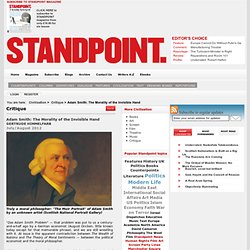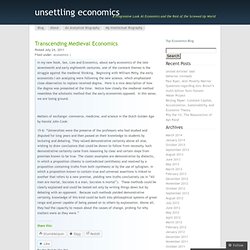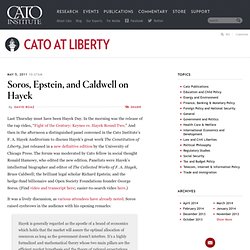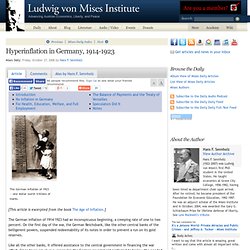

Gauging the multiplier: Lessons from history. The size of the fiscal policy multiplier – and thus the impact of austerity on GDP – has been a contentious issue since the crisis started.

The IMF recently revived the debate by suggesting that the multiplier is much higher than previously thought in the current policy environment. This column discusses independent empirical research that confirms the IMF’s view – the authors’ estimate of the multiplier is in the range of 1.6. The IMF grabbed headlines and upset officials earlier this month when it released an analysis which concluded that, starting in 2009, the fiscal policy multiplier has actually been considerably larger than previously supposed (IMF 2012). The Fund’s new estimates, which range from 0.9 to 1.7, suggest that Europe’s policies of austerity are in fact directly responsible for the fact that the continent’s recessions have been even deeper than initially forecast.
We are shocked – shocked – to find that there’s multiplication going on in here. Actually, not so shocked. A Short History of Financial Euphoria.
Adam Smith: The Morality of the Invisible Hand. Truly a moral philosopher: "The Muir Portrait" of Adam Smith by an unknown artist (Scottish National Portrait Gallery) "Das Adam Smith Problem" — that problem was put to us a century-and-a-half ago by a German economist (August Oncken, little known today except for that memorable phrase), and we are still wrestling with it.

Broadcast Yourself. Max Rudin introduces Bill Moyers and James K. Galbraith. Transcending Medieval Economics « unsettling economics. In my new book, Sex, Lies and Economics, about early economics of the late seventeenth and early eighteenth centuries, one of the constant themes is the struggle against the medieval thinking.

Beginning with William Petty, the early economists I am analyzing were following the new science, which emphasized close observation to replace received dogma. Here is a nice description of how the dogma was presented at the time. Notice how closely the medieval method resembles the scholastic method that the early economists opposed.
In this sense, we are losing ground. Matters of exchange: commerce, medicine, and science in the Dutch Golden Age by Harold John Cook: 15-6: “Universities were the preserve of the professors who had studied and disputed for long years and then passed on their knowledge to students by lecturing and debating. Like this: Like Loading... A Brief History of the Corporation: 1600 to 2100. On 8 June, a Scottish banker named Alexander Fordyce shorted the collapsing Company’s shares in the London markets.

But a momentary bounce-back in the stock ruined his plans, and he skipped town leaving £550,000 in debt. Much of this was owed to the Ayr Bank, which imploded. In less than three weeks, another 30 banks collapsed across Europe, bringing trade to a standstill. On July 15, the directors of the Company applied to the Bank of England for a £400,000 loan. Two weeks later, they wanted another £300,000. If this sounds eerily familiar, it shouldn’t. In its 400+ year history, the corporation has achieved extraordinary things, cutting around-the-world travel time from years to less than a day, putting a computer on every desk, a toilet in every home (nearly) and a cellphone within reach of every human. So it is a sort of grim privilege for the generations living today to watch the slow demise of such a spectacularly effective intellectual construct. Arthur C. Reach versus Power II. Sociology 185 - GLOBAL SOCIOLOGY - Lecture 5: Walden Bello - Global Financial Institutions Soros, Epstein, and Caldwell on Hayek.
Last Thursday must have been Hayek Day.

In the morning was the release of the rap video, “Fight of the Century: Keynes vs. Hayek Round Two.” And then in the afternoon a distinguished panel convened in the Cato Institute’s F. A. Hayek Auditorium to discuss Hayek’s great work The Constitution of Liberty, just released in a new definitive edition by the University of Chicago Press. It was a lively discussion, as various attendees have already noted.
Hayek is generally regarded as the apostle of a brand of economics which holds that the market will assure the optimal allocation of resources as long as the government doesn’t interfere. He went on to criticize that theory and to offer his own alternative theory of “reflexivity,” while praising Hayek’s warning “against the slavish imitation of natural science” in the social sciences. Epstein argued that Hayek’s work points not to unfettered markets but to a “presumption against regulation.”
In Praise of Marx - The Chronicle Review. By Terry Eagleton Praising Karl Marx might seem as perverse as putting in a good word for the Boston Strangler.

Were not Marx's ideas responsible for despotism, mass murder, labor camps, economic catastrophe, and the loss of liberty for millions of men and women? Was not one of his devoted disciples a paranoid Georgian peasant by the name of Stalin, and another a brutal Chinese dictator who may well have had the blood of some 30 million of his people on his hands? The truth is that Marx was no more responsible for the monstrous oppression of the communist world than Jesus was responsible for the Inquisition.
For one thing, Marx would have scorned the idea that socialism could take root in desperately impoverished, chronically backward societies like Russia and China. Marx certainly wanted to see justice and prosperity thrive in such forsaken spots. Marx was the first thinker to talk in those terms. That, however, was only part of the story. Marx was not some dreamy utopianist. Hyperinflation in Germany, 1914-1923 - Hans F. Sennholz. [This article is excerpted from the book The Age of Inflation.]

The German inflation of 1914–1923 had an inconspicuous beginning, a creeping rate of one to two percent. On the first day of the war, the German Reichsbank, like the other central banks of the belligerent powers, suspended redeemability of its notes in order to prevent a run on its gold reserves. Like all the other banks, it offered assistance to the central government in financing the war effort. Since taxes are always unpopular, the German government preferred to borrow the needed amounts of money rather than raise its taxes substantially. To this end it was readily assisted by the Reichsbank, which discounted most treasury obligations.